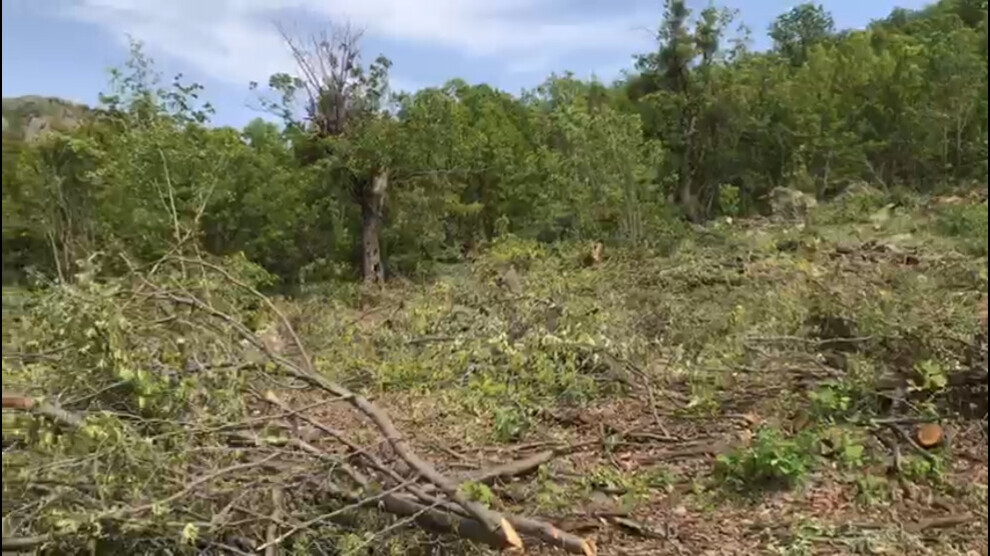Turkish army and village guards destroy trees in Şırnak countryside
Nature is among the primary targets of the Turkish state in its annihilation campaign against the Kurdish people and their lands.
Nature is among the primary targets of the Turkish state in its annihilation campaign against the Kurdish people and their lands.

The massive destruction of trees continues in the areas of Besta, Gabar, Cudi and Mount Namaz in the countryside of the Şırnak province amid Turkey’s ongoing military operations in the region.
Village guards dispatched from the Sêgirkê and Hîlal towns of Uludere district to the Besta region are cutting down trees in Tikera region under the supervision of the Turkish troops.
Village guard chiefs Mahmut Babat, Kazım Babat and Süleyman Babat, who have won the “tender” of tree destruction in Besta, do not only deploy their guards to the region but also force the local people to take part in the destruction.
In the Tikera region where trees are massively destroyed, 300 tons of trees are cut down every day and these are then transported to an area near Segirke town. The trees are finally sold by Mahmut Babat, Kazım Babat and Süleyman Babat.
Village guards
Village guards are paramilitary units used in Kurdistan against guerrillas and unwelcome opposition members. They consist to a considerable extent of tribal leaders, large landowners, families, and individuals who have often worked with the state for decades in an attempt to advocate for the state's interests in Kurdistan. Some of the village guards join this system voluntarily, while others are threatened with murder, arrest, and expulsion and must become village guardians under pressure. The Hamidiye regiments in the Ottoman Empire are considered the historical model of the village guards. Today's village guard system came into being in 1985, a year after the Kurdistan Workers' Party (PKK) launched its armed struggle. At that time, the Turkish government under Turgut Özal began recruiting and arming Kurdish tribes and clans in the war against the PKK. Thousands of Kurdish villages that rejected the village guard system were burned and razed to the ground by the state in the 1990s.